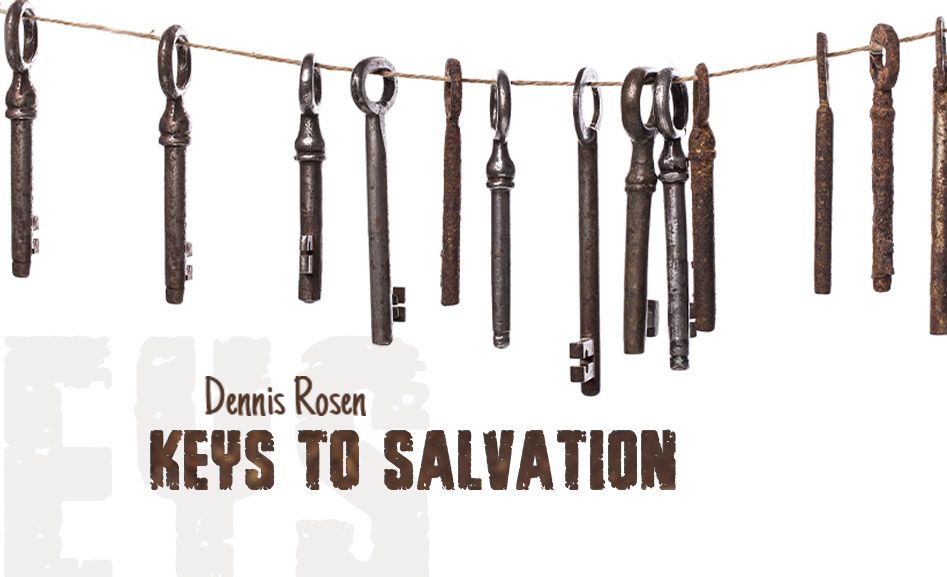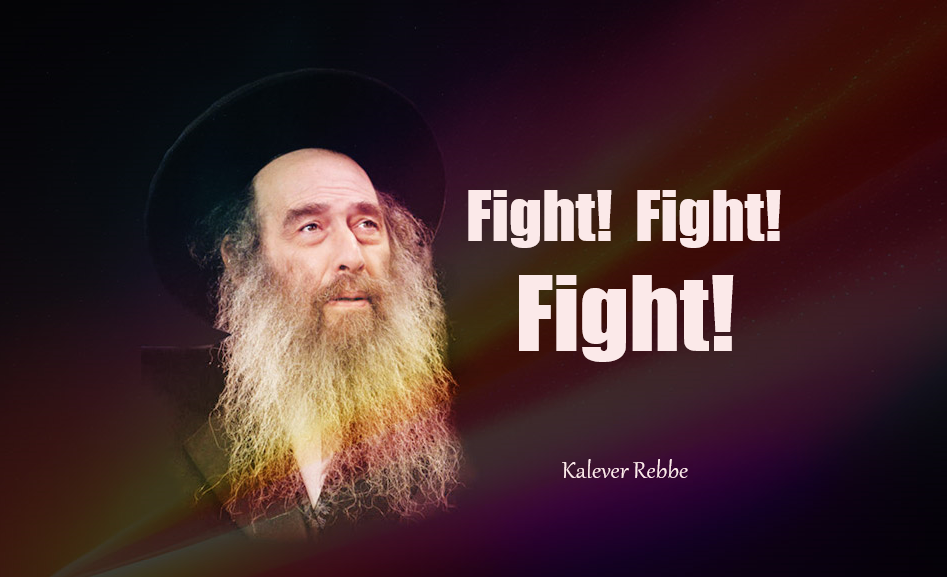
Good or Evil?
In Judaism, a person isn’t just ‘good’ if they don’t murder or steal; one must actively do good. But that’s not all. The Jewish definition of ‘good’ is doing G-d’s will...

When I lived in the UK, I used to have quite a few frustrating conversations with people who weren’t observant about ‘good people’. The conversation always followed the same, predictable, path. I’d be keeping kosher, or keeping Shabbat, or giving my 10% to charity every month, and someone (always a Jew…) would pop up and start having a go at me about all these ‘arcane’ habits that I had.
I would try to explain to them that as Jews, we were commanded by G-d to keep all these mitzvot. And that’s when the conversation would get really awkward, because a Jew who isn’t keeping a lot of mitzvot is always on the defensive around a Jew that is.
On one occasion, I got told that me keeping kosher was proof that I’d been ‘brain-washed’, and that I didn’t have any free-will left. The duplicity of the argument was so incredible that I was left speechless. I can’t count the number of times I really, really wanted that piece of chocolate; that cheese; that particular treat – and I didn’t buy it or eat it, only because I wasn’t sure it was kosher, or kosher enough.
Each time was an exercise in free-will, or to put it another way, each time was an enormous test to see whether I would put what G-d wanted ahead of what I myself preferred.
And even now, there are no guarantees that I’ll pass the next test. Sure, it moves up a level each time: now, for example, I’m having arguments with myself over ‘kosher’ milk that isn’t chalav Israel (produced solely by Jews), as opposed to eating in a clearly traif ‘vegetarian’ restaurant.
Or, I’m having arguments with myself over whether I checked my rice enough, whereas in the UK I never checked it at all.
The arguments I had about keeping Shabbat or Yom Tov would also get my blood boiling. I’d have to sit through lectures about how you couldn’t have ‘fun’ on Shabbat; or how you couldn’t have proper family time on Shabbat; or how Shabbat was so confining and constraining and boring – all from people who spent their Sabbaths watching TV (and ignoring each other) or going shopping (and ignoring each other) or spending ‘family time’ together – glued to their iPods or iPads or laptops or mobile phones (and ignoring each other).
I used to try and argue, but once I realized that these people weren’t interested in hearing what was true, but only in proving me wrong and themselves right, I stopped. How could I argue? What could I say to people who already knew beyond a shadow of a doubt that there was no G-d in the world, G-d forbid, and that they were the only ‘objective’ arbiters of truth whose opinion they’d accept?
But the discussion that used to really get my goat the most was the one about ‘good people’. Again, it always went the same, well-worn, tried-and-tested route: we’d be talking ‘generalities’ and then, all of a sudden, I’d mention G-d, or religion, or the purpose of life, and that would make the person I was talking to uncomfortable and they would flip into ‘attack’ mode.
We’ve all been there. They say something outrageous, you counter it with Torah. They say something else outrageous, you counter it with Torah – and because it is Torah, their souls feel that it’s true (and usually, they also don’t know enough to argue past the first 10 seconds…) – which is when the ‘good people’ comment usually pops up.
‘OK, I don’t give much to charity’; or ‘OK, I love lobster bisque’; or ‘OK, I didn’t marry a Jew and my kids are going to a church school’ – BUT (there’s always a but…) “I’m still a good person.”
I hate when people tell me that.
Because it’s just not true.
In Judaism, a person isn’t just ‘good’ if they don’t murder, steal and lie. You have to actively do good. But that’s not all. The Jewish definition of ‘good’ is doing G-d’s will, as expressed in the Torah.
G-d wants us to give 10% of our income to charity; G-d wants us to talk to Him every day; G-d wants us to check our food for bugs; G-d wants us to pass up that opportunity to spread some juicy gossip; G-d wants us to understand just how limited we are without Him.
I’m trying to do a lot of these things, and each day gives me a deeper understanding of just how far away from being a ‘good person’ I really am – which is also why I get so fed up with all the self-proclaimed ‘good people’, who dress up all their personal preferences and desires as ‘good’.
If G-d is out of the picture, how do you define ‘good’?
There are people in the world who think it’s ‘good’ to be a suicide bomber – not just ‘good’, the very best thing you could possibly be.
There are people in the world who think it’s ‘good’ to raise money to pay for ‘safe’ abortions for teenagers. There are people in the world that think it’s ‘good’ to kill people off once their physical quality of life has declined past a certain point.
They’ll all argue until they are blue in the face that they are ‘good people’ – but according to Torah law, they are pretty much the worst evildoers they could be.
Again, it’s easier to see it with extreme examples, but something I read in a book called ‘The Halachot of Mourning’ really made me realize that ‘evil’ – as defined by the Torah – is far more subtle and pervasive than that.
There’s an idea that for as long as a soul is being judged in Gehinnom (you’d translate it as ‘purgatory’ but it’s not the Xtian idea at all – their purgatory is eternal, and ours is only for 12 months), their closest relatives should say kaddish (the prayer for a deceased person’s soul).
However, no-one wants to think that their relatives were the ‘worst of the worst’, so there’s a custom to stop saying kaddish at 11 months – unless the deceased was a known ‘evildoer’, in which case, it says you should continue a full year.
What example is given of a ‘known evildoer’? A person who doesn’t keep Shabbat.
Gulp.
I had a real shock when I read that. I guess the biggest shock I had is that G-d is serious about us keeping His Torah. We can argue, and protest, and wear T-shirts with ‘good people’ printed across the front in bright pink letters, but if we aren’t trying to do what He wants – or maybe, even just thinking about trying to do it – we’re ‘known evildoers’.
And no-one wants that on their record when they pass on the next world, however ‘good’ they might be.












1/19/2012
Gulp, indeed. I struggle with the gemara gulp moment of "they don't keep shabbat" when I think of truly wonderful, non-religious people I know. It is very difficult to accept sometimes, so I don't try to understand. Hashem judges us according to our personal circumstances. I may indeed look and play the part, then be judged far more harshly for the lacklustre way I keep shabbos than others might be for not keeping it at all. That keeps me in line from looking over the fence.
1/19/2012
I struggle with the gemara gulp moment of "they don't keep shabbat" when I think of truly wonderful, non-religious people I know. It is very difficult to accept sometimes, so I don't try to understand. Hashem judges us according to our personal circumstances. I may indeed look and play the part, then be judged far more harshly for the lacklustre way I keep shabbos than others might be for not keeping it at all. That keeps me in line from looking over the fence.
1/19/2012
been thinking about the same thing Nice article! I think about it this way. There are non-observant Jews (and non-Jews for that matter) who are good people in the sense that they have good character traits, are kind to others, etc. And there is some reason to say these person-to-person mitzvot are ultimately most important. As Rav Arush said in an article on this website: "I've noticed a peculiar phenomenon – when people make tshuva, they run to the man-and-G-d mitzvas – Shabbat, kashrut, mikva, Torah learning – but they often neglect the real tshuva, adam l'chavero – man & fellow man. Why do we call that the real tshuva? The answer is that we come to this world to perfect our character – to be less brutal, less arrogant, more kind and and more considerate. The way a person observes the commandments that govern one's relations between man & fellow man is a barometer to the quality of his or her character. For example, you can't be a tzaddik – even if you know the Gemara by heart – if you cheat someone or don't repay a debt." However, if Jews are just kind, nice, responsible people who don't follow the "non-ethical" mitzvot, the most of the time their descendants a few generations later will be non-Jews, because of intermarriage. So where has that good behavior got them? In the long run, all was lost, because they were responsible for cutting themselves off from their people and decreasing their people's numbers (or slowing its growth) (after all, to increase and multiply is the first commandment). On the other hand, if someone follows the ritual mitzvot but has bad middot (is a "bad" person) or cheats people, people notice it, call them hypocrites, and conclude that that's what religious Jews are like, creating a huge chillul Hashem. So it's very important we ensure people are cultivating good character traits — if they're following the other mitzvot but not growing in chesed, then something is wrong, and people need to intervene and do something to rectify the situation, just as the prophets did. As Rav Brody is fond of saying, just because someone looks religious, doesn't mean he's really religious. Rebbe Nachman's teachings are a great tool for treating this problem. Conversely, even if people may think they're being great people without Torah, they're ultimately wrong. By being mitzvah-observant too, they could develop even better character traits, and besides that contribute to the future of the Jewish people, achieve their spiritual mission in life (no no purgatory or reincarnation is necessary) and bring us closer to the ultimate redemption. But for them to believe this, they need proof — like friendly, spiritually-advanced religious people who interact with secular people.